He is a scientist, poet, writer, four-time elected student leader at Cambridge University, and activist. Dr. Mrittunjoy Guha Majumdar has led a varied life which currently sees him as a postdoctoral affiliate at Trinity College studying the foundations of quantum mechanics under Professor Brian Josephson, who is an all-time great of Physics and a Nobel Laureate.
Having been born in Connecticut, USA, Mrittunjoy completed his undergraduate degree in India before coming to the UK to obtain his PhD, which he did by the age of 25 at Cambridge University. He has embraced life and the opportunities it provides and has actively worked with governmental and non-governmental organizations, in India and the UK, in fields ranging from science popularization, education, women empowerment to social justice.
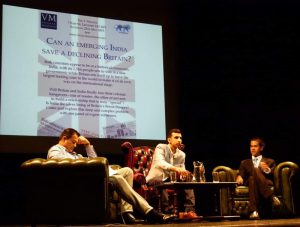 Despite being very Indian, he sees himself as very cosmopolitan. For instance, he organised the first hoisting of the Indian flag in the historic Parker’s Pieces in Cambridge, but has also looked at BAME rights, inclusivity, unconscious bias, and anti-racism in the University space and beyond.
Despite being very Indian, he sees himself as very cosmopolitan. For instance, he organised the first hoisting of the Indian flag in the historic Parker’s Pieces in Cambridge, but has also looked at BAME rights, inclusivity, unconscious bias, and anti-racism in the University space and beyond.
“I don’t see this duality, of being Indian and cosmopolitan, as a problem,” he told globalindianstories.org. “I think being truly Indian leads one to naturally being very cosmopolitan and tolerant. The birth of India in the modern age was based on age-old traditions, ideas, ideals and values. Central and fundamental to this was the idea of liberation: liberation from the burden of identities. Mukti, some would say. Tolerance, inclusivity and a desire for equality in society comes from that.”
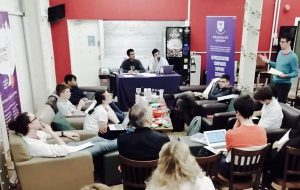 He certainly practise what he preaches. In the past, he has worked with several NGOs and international organizations working on sustainable development goals and policies that facilitate liberation. These include Amnesty International, Plan International, WHO, Pratham, Stop Trafficking and Oppression of Children & Women (STOP) and War Child.
He certainly practise what he preaches. In the past, he has worked with several NGOs and international organizations working on sustainable development goals and policies that facilitate liberation. These include Amnesty International, Plan International, WHO, Pratham, Stop Trafficking and Oppression of Children & Women (STOP) and War Child.
Despite coming to the UK he clearly still loves his home country. “I feel the idea of India is a promise to mankind, with its underlying principles, particularly that of unity in diversity. Being from this tradition and with this heritage, I believe we have a greater responsibility to be true to this spirit. For me, thanks to my upbringing and my parents and teachers, this comes rather naturally to me.”
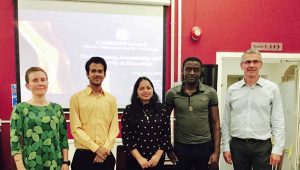 He also appreciates the opportunities that have arisen from coming to the UK, but also how much he has to offer too. “In the UK, Indians have contributed a lot to society here, in a constructive manner, over centuries. As an Indian student leader, I believe that we need to stand up for our interests and yet transcend that. At Cambridge, I have worked on issues and campaigns that cut across identities of race, gender, class and nationalities. These have ranged from battling unconscious bias and racism to housing and education policy.”
He also appreciates the opportunities that have arisen from coming to the UK, but also how much he has to offer too. “In the UK, Indians have contributed a lot to society here, in a constructive manner, over centuries. As an Indian student leader, I believe that we need to stand up for our interests and yet transcend that. At Cambridge, I have worked on issues and campaigns that cut across identities of race, gender, class and nationalities. These have ranged from battling unconscious bias and racism to housing and education policy.”
However, life in the UK hasn’t been without its challenges. He has been described as a ‘Hindu nationalist’ because of some of his choices. “As someone who fundamentally disagrees with compartmentalisation based on ideologies and identities, I would distance myself from this tag,” he says. “I am a proud Indian but am not sure that nationalism, in the modern sense, has much to do with Hinduism. On principle, I would like to maintain the separation of religion and politics.”
He continues to distance himself from the dogmatic nature that often comes with the term ‘nationalism’. “If this nationalism has to do with the parochial politics of moral policing and disregarding of the innate humanity of other people, then I am unequivocally not a Hindu nationalist but rather a Dharmic Universalist then.”
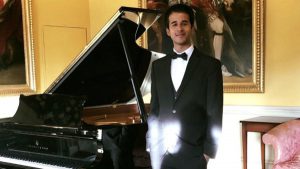 The taunts haven’t stopped his faith in the future or how he can achieve positive change. “I believe in the equilibrium in society and nature, and feel that the Indian civilisation can help mankind today, when it is struck by rifts and fissures everywhere, be it with Brexit, conflict in the middle east or human rights violations across the world, by providing it with the elixir of tolerance, inclusivity and true cosmopolitanism.”
The taunts haven’t stopped his faith in the future or how he can achieve positive change. “I believe in the equilibrium in society and nature, and feel that the Indian civilisation can help mankind today, when it is struck by rifts and fissures everywhere, be it with Brexit, conflict in the middle east or human rights violations across the world, by providing it with the elixir of tolerance, inclusivity and true cosmopolitanism.”
Having already achieved much, it looks as though Dr. Mrittunjoy Guha Majumdar still has much he wants to do to make the world a better place for everyone.
Jonathan has a varied history, having written for publications such as Asian Woman but also technical magazines such as Networking+. He also has a background in IT so he's been instrumental in the technical side of getting Global Indian Stories launched. As co-founder, he also keeps writing, sub-editing, and handling the social media.
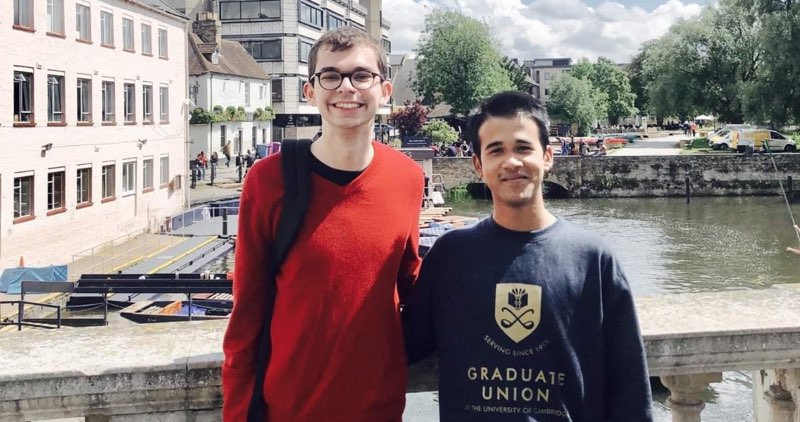

![Powerful Pride documentary Legendary Children [All Of Them Queer] streaming very soon](https://globalindianstories.org/wp-content/uploads/2025/06/Legendary-streaming-release-featured-238x178.jpg)



![Powerful Pride documentary Legendary Children [All Of Them Queer] streaming very soon](https://globalindianstories.org/wp-content/uploads/2025/06/Legendary-streaming-release-featured-100x75.jpg)

